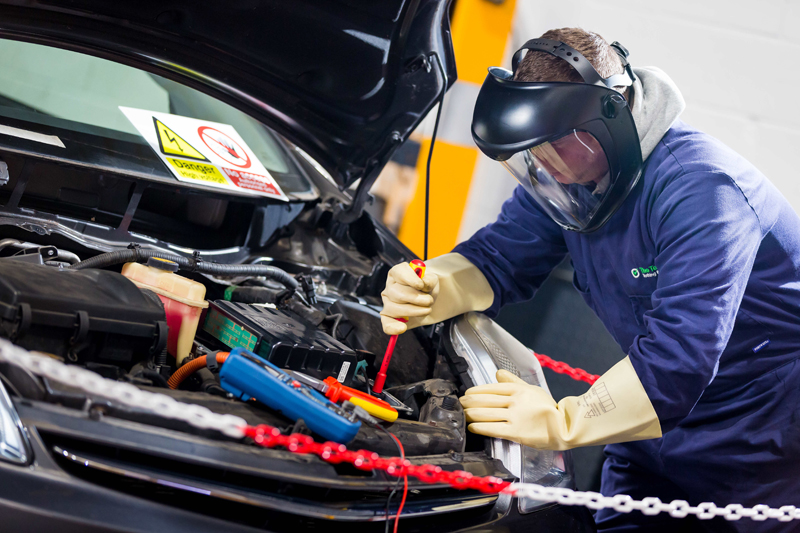
The Institute of the Motor Industry (IMI) has released data showing a chasm in the EV skilled workforce, compared to growth in BEV, PHEV and HEV sales.
As data from the SMMT showed EV sales represent 23% of the new vehicle market in May. This Analysis by the IMI has revealed that by the end of 2020 only 6.5% of the automotive sector was EV ready. This is just a 1.5% increase on previous IMI analysis of the workforce and is said to underline the gaping chasm in the proportion of the automotive sector skilled to work on electric vehicles. The IMI believes this deficit presents a serious risk to consumer confidence in wide-scale adoption of zero emission motoring.
Steve Nash, CEO of the IMI, explained: “There is no question that government, industry and consumers are all switching on to the idea of electric motoring. The growing representation of BEV, PHEV and HEV in overall new car sales is clear demonstration of that. And the manufacturers and their franchise networks are certainly leading the way in giving customers more support and information as well as upskilling their workforces.
“However the fact that our analysis shows such a big deficit in the EV skilled workforce should ring alarm bells for government, with its big ambitions for 2030. The recent House of Commons Public Accounts Committee report into the transition to zero emission vehicles highlighted the need to train and retrain the workforce required to service the new car fleet. But highlighting the need and actually committing to investment in the upskilling are two very different things. And the current skills gap right across the UK economy, exacerbated by a combination of COVID-19 and Brexit is adding a further dimension to the challenge.
“The lack of thought given to the training needs of the swathe of businesses and individuals in the automotive ecosystem – from the distribution chain of car dealers to service & repair and even accident recovery – could severely hamper the government’s ambitions. If the new parc of electric vehicles can’t be serviced and repaired safely, consumer confidence could be severely undermined. The ramp-up plan for all those who are likely to work on electric vehicles – from service and repair technicians to those working in the roadside recovery and blue light sectors – now must be addressed as a matter of urgency. And that means some of that £12bn investment promised by the Prime Minister needs to be put towards skills training.”
The IMI TechSafe standards, endorsed by OLEV at the end of 2019, means that electrified vehicle users can access the IMI Professional Register to check the electric vehicle technical competencies of technicians at their local garage. But, the new IMI data shows that the sector is currently a long way off achieving a critical mass of technicians qualified.









